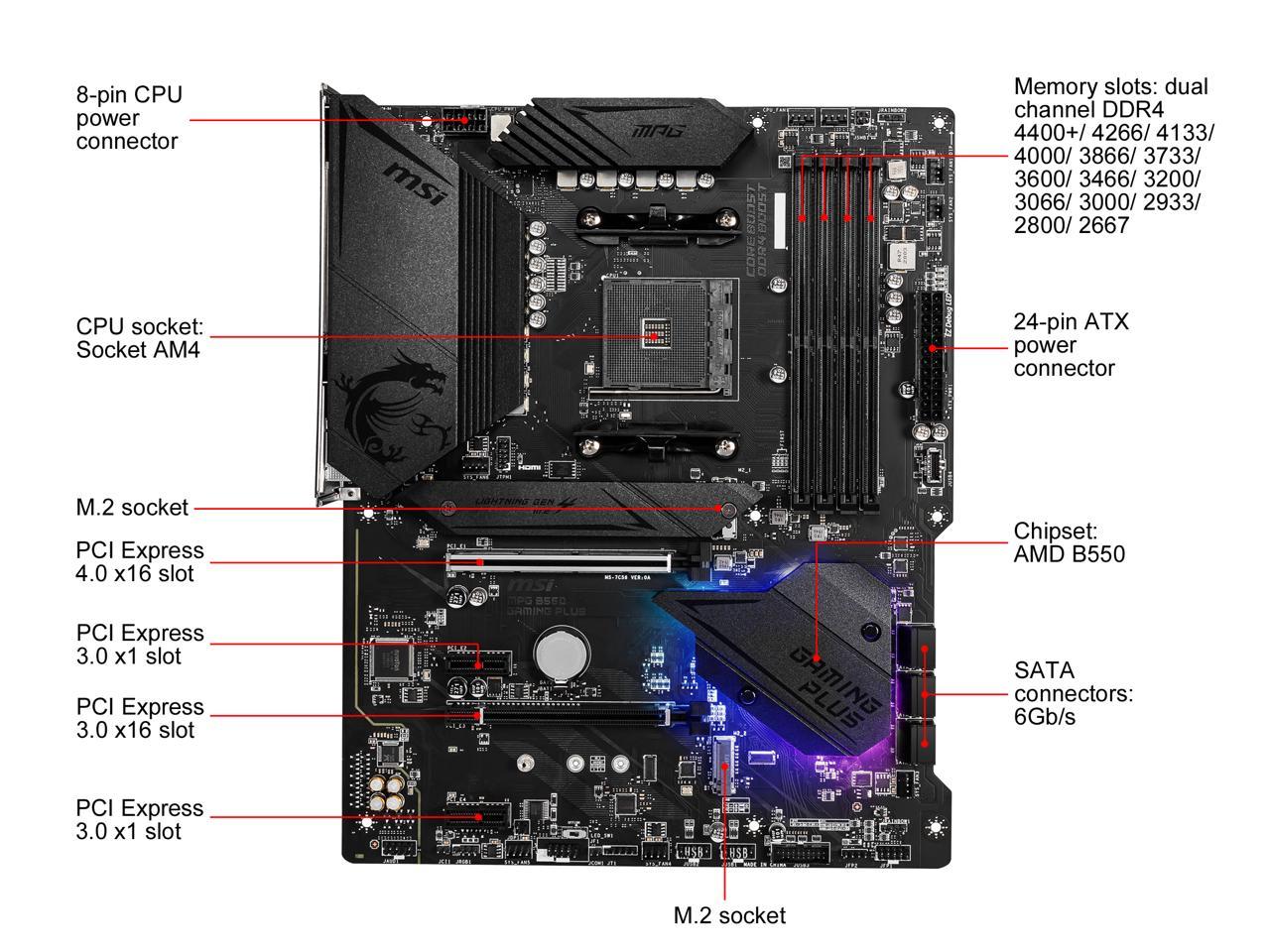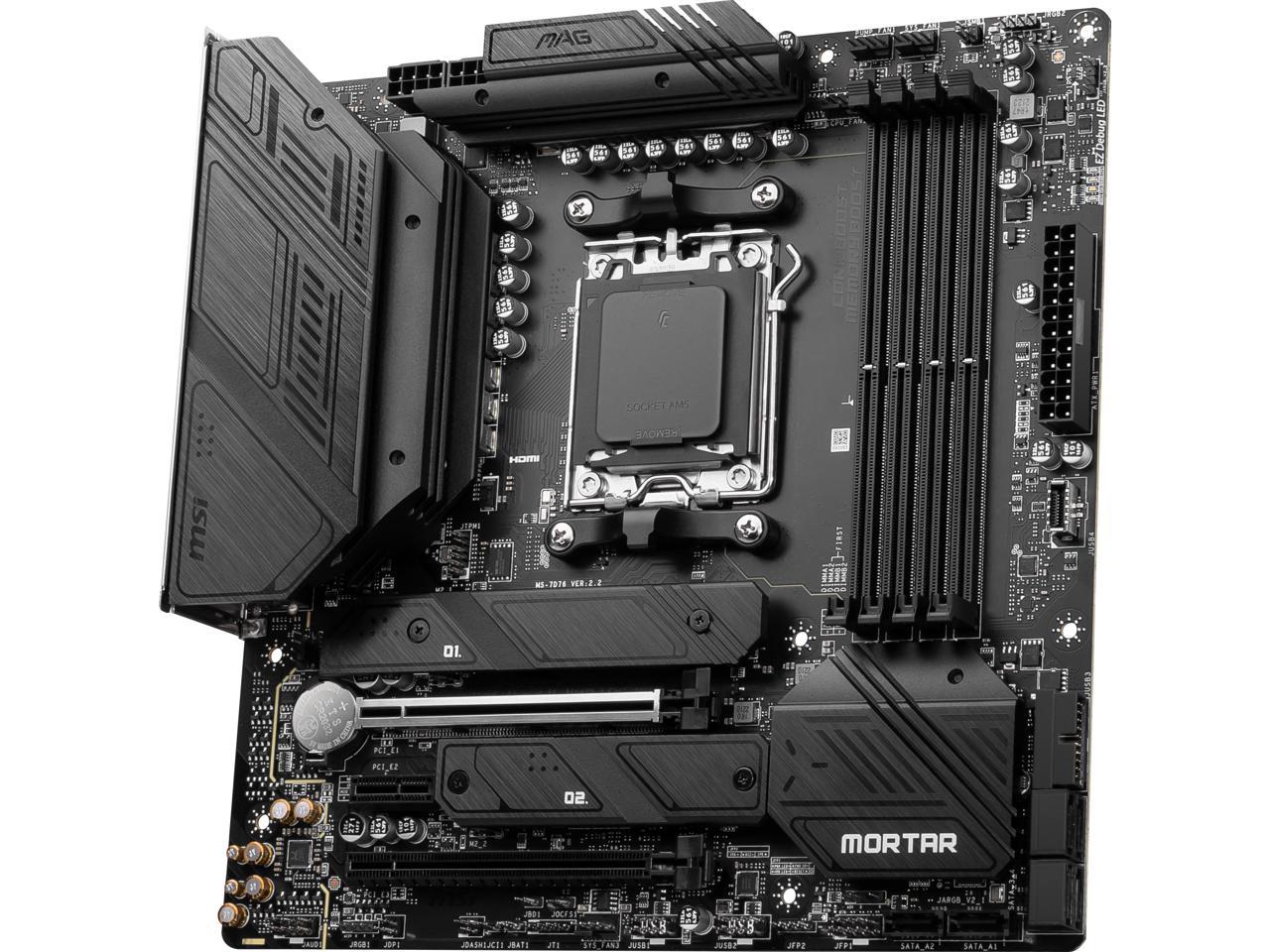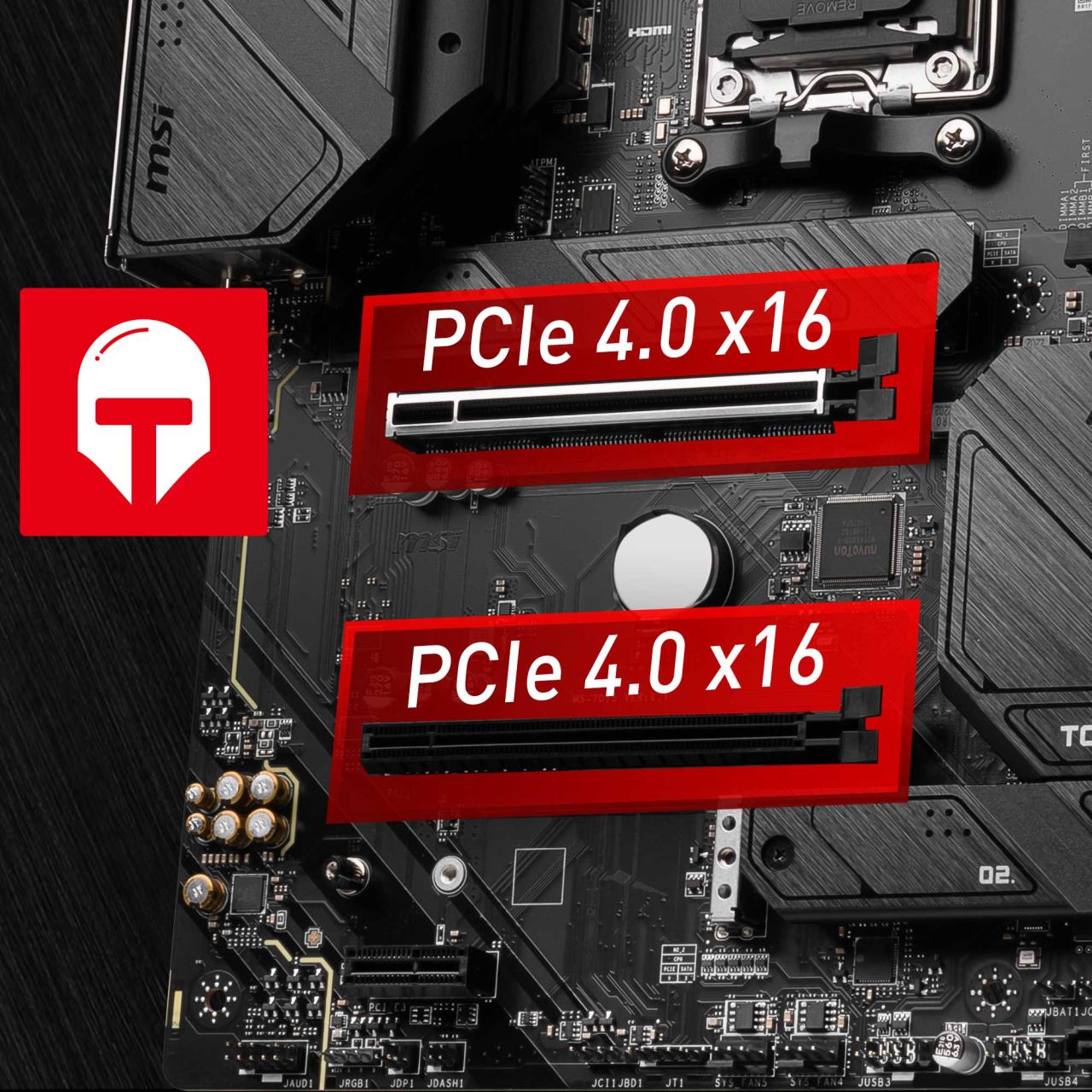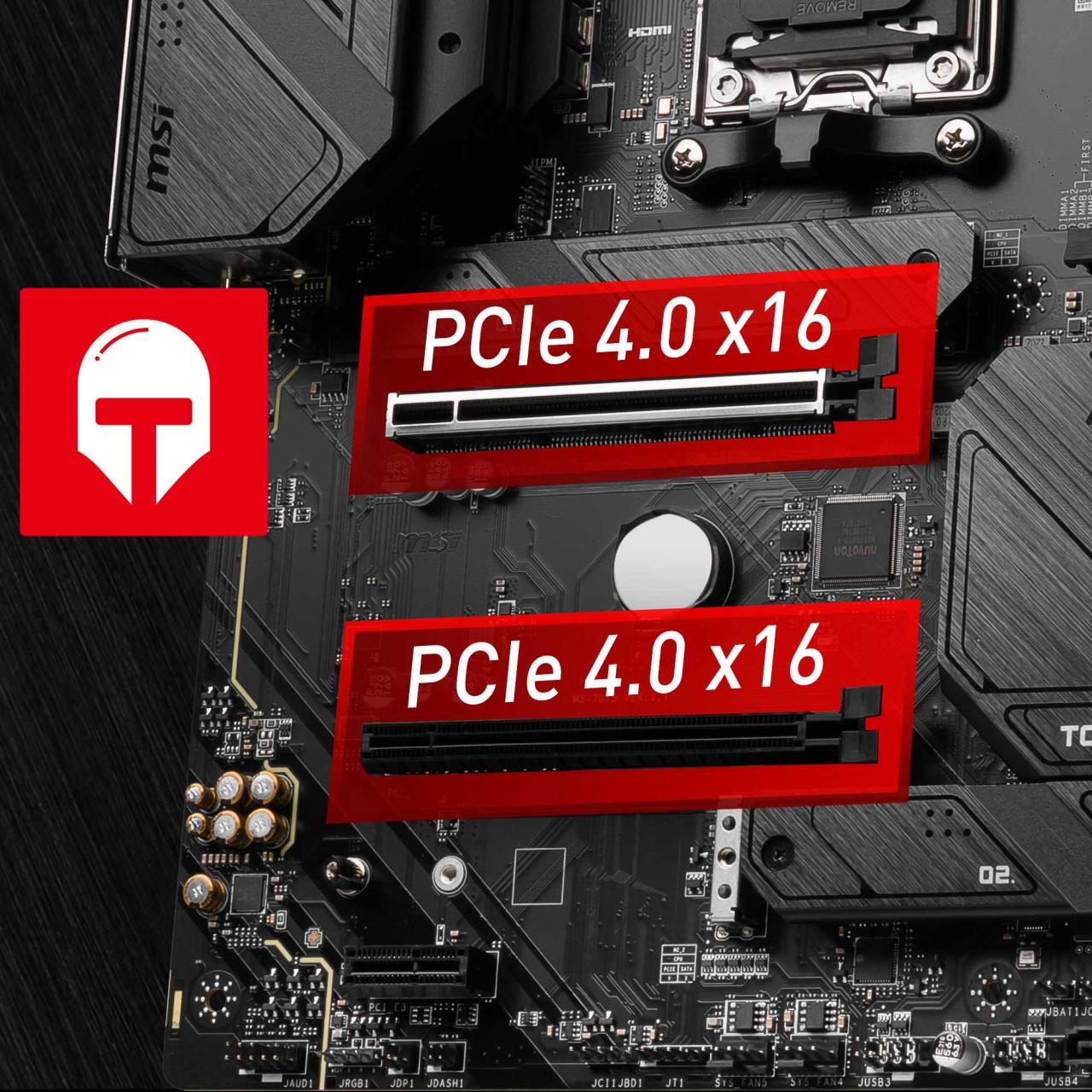MSI B650 Gaming Plus WIFI Manual: Dive into the world of high-performance PC building with this comprehensive guide. We’ll cover everything from initial setup and BIOS navigation to advanced overclocking and troubleshooting. Get ready to unlock the full potential of your new motherboard!
This manual provides a step-by-step walkthrough for installing and configuring the MSI B650 Gaming Plus WIFI motherboard. We’ll explore its key features, compare it to competitors, and offer solutions to common problems. Whether you’re a seasoned PC builder or a first-timer, this guide will equip you with the knowledge to build and optimize your dream PC.
MSI B650 Gaming Plus WIFI Motherboard: A Deep Dive
This guide provides a comprehensive overview of the MSI B650 Gaming Plus WIFI motherboard, covering its features, installation, troubleshooting, and performance tuning. We’ll compare it to competitors, guide you through BIOS navigation, and help you resolve common issues. Let’s get started!
Product Overview: MSI B650 Gaming Plus WIFI
The MSI B650 Gaming Plus WIFI is a mid-range motherboard designed for gamers and PC enthusiasts seeking a balance of performance and affordability. Key features include support for AMD Ryzen 7000 series processors, PCIe 5.0 support for high-speed graphics cards and storage, and integrated Wi-Fi 6E for wireless connectivity. It offers robust VRMs for stable overclocking and a range of connectivity options.
Compared to similar motherboards in its price range, the MSI B650 Gaming Plus WIFI often stands out with its feature set, particularly its PCIe 5.0 support and the inclusion of Wi-Fi 6E. Some competitors may offer slightly different feature combinations or prioritize different aspects (e.g., more USB ports or advanced audio solutions), but the MSI board generally provides a well-rounded package.
So you’re diving into the MSI B650 Gaming Plus Wifi manual? That’s great! Getting familiar with your motherboard’s specs is crucial, especially if you’re planning on building a powerful system, maybe even one that can control a dji drone canada for some awesome aerial photography. Once you’ve mastered your motherboard’s settings, you’ll be ready to tackle any project, including setting up your drone’s ground station.
Remember to check the manual for BIOS updates to optimize your MSI B650 Gaming Plus Wifi performance.
The target audience includes gamers who want a reliable platform for their high-end components and enthusiasts interested in exploring overclocking and system tuning. Budget-conscious builders also find it attractive due to its competitive pricing.
| Motherboard | Price (USD) | Chipset | Key Features |
|---|---|---|---|
| MSI B650 Gaming Plus WIFI | ~200 | AMD B650 | PCIe 5.0, Wi-Fi 6E, DDR5 support, robust VRMs |
| ASUS ROG Strix B650-A Gaming WiFi | ~220 | AMD B650 | PCIe 5.0, Wi-Fi 6E, Aura Sync lighting, robust audio |
| ASRock B650 Pro RS | ~180 | AMD B650 | PCIe 5.0, DDR5 support, focus on stability and reliability |
| Gigabyte B650 AORUS ELITE AX | ~250 | AMD B650 | PCIe 5.0, Wi-Fi 6E, advanced cooling solutions, high-end features |
BIOS and UEFI Navigation

Accessing the BIOS/UEFI is typically done by pressing the DEL or F2 key repeatedly during the initial boot sequence. The exact key may vary depending on your system. Navigation is usually done using the arrow keys, Enter key for selection, and Esc or F10 to save and exit.
Updating the BIOS firmware is crucial for maintaining optimal performance and stability. MSI provides BIOS updates on their website. Download the correct BIOS version for your motherboard and follow the instructions provided, often using a USB flash drive. Some motherboards offer a “BIOS Flashback” feature allowing for updates even without a CPU installed.
The BIOS/UEFI settings are typically categorized into sections such as Overclocking, Boot, Security, Advanced, and Hardware Monitor. Overclocking allows adjusting CPU clock speeds, voltages, and RAM timings. Boot settings manage boot order and boot devices. Security settings include password protection and secure boot options. Advanced settings allow for fine-grained control over various system parameters.
The Hardware Monitor displays system temperatures, fan speeds, and voltages.
So you’re wrestling with your MSI B650 Gaming Plus WiFi manual? Don’t worry, setting up network hardware can be tricky. If you’re having trouble, remember that even seemingly simple devices, like printers, can present challenges; for example, setting up your wireless printer might require a similar level of attention to detail. Check out this guide for help with a Canon printer: canon ts3420 wifi setup.
Once you’ve got the hang of that, you’ll find the MSI manual much easier to follow!
Installation and Setup
Installing the MSI B650 Gaming Plus WIFI involves several steps. First, ensure you have the necessary components: CPU, RAM, storage device (SSD or HDD), power supply, and a compatible case. Tools needed include a Phillips head screwdriver and possibly an anti-static wrist strap.
- Install the CPU carefully, ensuring correct orientation.
- Install the RAM modules into the appropriate slots.
- Mount the motherboard into the case.
- Connect the power supply cables.
- Install the storage device.
- Connect peripherals.
Potential installation problems include incorrect CPU installation, incompatible RAM, loose connections, and improper grounding. Solutions typically involve double-checking each connection, using the correct components, and ensuring proper grounding.
| Problem | Cause | Solution |
|---|---|---|
| No POST | Incorrect CPU installation, RAM issues, power supply problems | Check CPU and RAM installation, ensure sufficient power supply wattage |
| Boot failure | Incorrect boot order, faulty storage device | Check boot order in BIOS, test storage device in another system |
| Overheating | Insufficient cooling, dust buildup | Improve cooling, clean system components |
Connectivity and Ports, Msi b650 gaming plus wifi manual
The motherboard offers a comprehensive array of ports and connectors. The rear panel includes several USB ports (including USB 3.2 Gen 2×2 and USB 3.2 Gen 1), a Gigabit Ethernet port, Wi-Fi 6E antenna connectors, audio jacks, and display outputs (HDMI and DisplayPort). The motherboard also features several internal connectors such as M.2 slots for NVMe SSDs, SATA connectors for traditional HDDs and SSDs, and various headers for case fans, USB, and other peripherals.
A detailed description of the rear panel layout (from left to right): Antenna connectors for Wi-Fi 6E, followed by several USB 3.2 Gen 2×2 ports, USB 3.2 Gen 1 ports, a Gigabit Ethernet port, audio input and output jacks, and finally, HDMI and DisplayPort video outputs. The internal connectors are located primarily around the CPU socket and chipset area, with M.2 slots, SATA ports, and various headers for case fans, USB, and other expansion cards.
Troubleshooting Common Issues

Common problems include boot failures, POST errors, and connectivity issues. Boot failures can be caused by incorrect boot order, faulty hardware, or BIOS issues. POST errors often indicate a hardware problem, such as a faulty RAM module or CPU. Connectivity issues can result from driver problems, faulty cables, or hardware malfunctions.
| Problem | Possible Cause | Troubleshooting Steps |
|---|---|---|
| No display output | Incorrectly seated graphics card, faulty cable, incorrect display output selection | Reseat graphics card, check cables, adjust display output settings in BIOS |
| System instability | Overclocking instability, driver conflicts, overheating | Reduce overclocking settings, reinstall drivers, improve cooling |
| Intermittent freezes | Driver issues, hardware conflicts, RAM problems | Update drivers, check for hardware conflicts, test RAM with memory diagnostic tools |
Overclocking and Performance Tuning

The MSI B650 Gaming Plus WIFI offers decent overclocking capabilities, allowing for increased CPU and RAM performance. Safe overclocking involves gradual adjustments to CPU clock speed and voltage, monitoring temperatures closely. Similarly, RAM overclocking involves adjusting timings and voltages, again with careful monitoring for stability. Successful overclocking can lead to noticeable performance improvements in games and other demanding applications.
For example, a 5% CPU overclock might result in a 3-5% performance increase in gaming benchmarks, depending on the game and other system components.
Software and Drivers

The MSI B650 Gaming Plus WIFI includes several software utilities, such as MSI Center for system monitoring and control, and potentially BIOS Flashback utility. Drivers for various components are usually available on the MSI website. Installing and configuring these drivers is essential for optimal functionality. MSI’s software suite is comparable to those offered by other motherboard manufacturers, providing similar functionality but with a different user interface and feature set.
Summary: Msi B650 Gaming Plus Wifi Manual
Mastering your MSI B650 Gaming Plus WIFI motherboard is now within reach! From understanding the BIOS to troubleshooting potential issues, this manual has provided you with the essential knowledge to build and optimize a powerful, stable system. Now go forth and conquer the digital realm!
FAQ Corner
What CPU sockets are compatible with the MSI B650 Gaming Plus WIFI?
So you’re diving into the MSI B650 Gaming Plus Wifi manual – good choice! It’s packed with info, but sometimes troubleshooting PC issues feels like a drone crash – a sudden, unexpected disaster. Luckily, unlike a crashed drone, a well-understood motherboard manual can get you back in the air (or, you know, back to gaming) quickly.
Understanding your BIOS settings is key, so get reading!
It supports AM5 sockets, designed for AMD Ryzen 7000 series processors.
Does the motherboard support NVMe drives?
Yes, it has several PCIe 4.0 and 5.0 slots supporting high-speed NVMe SSDs.
How much RAM can the motherboard handle?
Check the specifications, but generally it supports up to 128GB of DDR5 RAM (check specifics for exact amount and speed).
Where can I download the latest BIOS update?
Visit the MSI website’s support section for your motherboard model.
What is the MSI Center software used for?
MSI Center is a software suite that allows you to monitor system performance, control fan speeds, and tweak other settings.
